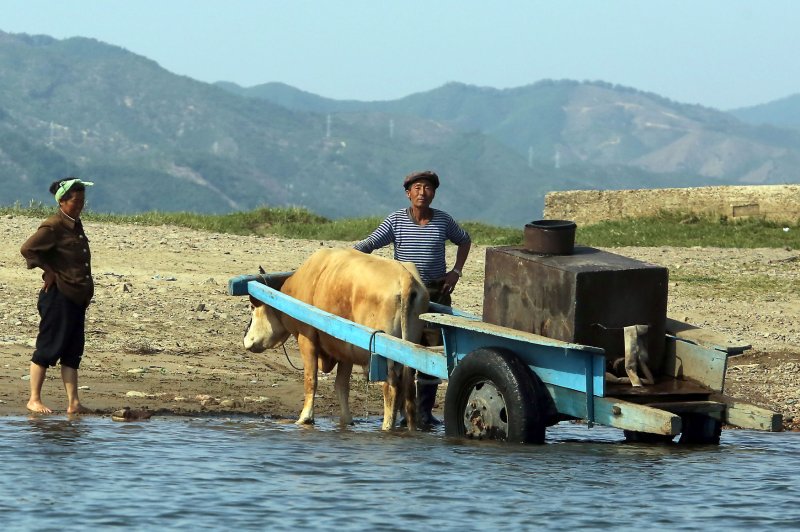A North Korean waits for a small pontoon to cross a tributary on the banks of the Yalu River near Sinuiju, across the Yalu River from Dandong, China's largest border city with North Korea, in Liaoning Province, on May 29. North Korea reduced state food rations in July owing to an ongoing drought that has affected crop production in the country. File Photo by Stephen Shaver/UPI |
License Photo
SEOUL, Aug. 4 (UPI) -- Food aid to North Korea more than doubled from June to July and over 3,000 tons were distributed to pregnant women and children, according to the World Food Program.
Damian Kean said Monday the July delivery of 3,231 tons of highly nutritional food items for infants and expectant and nursing mothers is this year's largest, Voice of America reported.
In June, the World Food Program said 1,528 tons of food was sent to North Korea, and aid reached a low in February when only 1,187 tons of food reached the reclusive country.
South Korean news agency Yonhap reported the July food aid package was the biggest in 19 months, but the number of aid recipients decreased from 632,000 to 620,000 between June and July.
The World Food Program's fundraising goal of $168 million – needed to provide highly nutritional food packages to 1.8 million hungry North Koreans – has only reached half, or $82.9 million, of its target number.
The U.N. organization has postponed the termination of its North Korea food aid program, due to an ongoing drought in the country that is posing risks to the food supply.
In April, Ghulam Isaczai, the U.N. Humanitarian Coordinator for North Korea, had said 2 million children, pregnant women and elderly North Koreans suffer from malnutrition.
Food and other aid from the international community have decreased dramatically over the years, according to the U.N. Humanitarian aid to North Korea in 2004 was estimated to be $300 million, but it was down to $50 million by 2014.
The Food and Agriculture Organization has previously said the state-sanctioned food supply was significantly reduced in July, from 410 to 310 grams daily per person.
State food rations in North Korea fluctuate from month to month, but the daily average ration for one person has been 390 grams.















